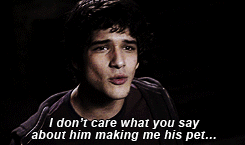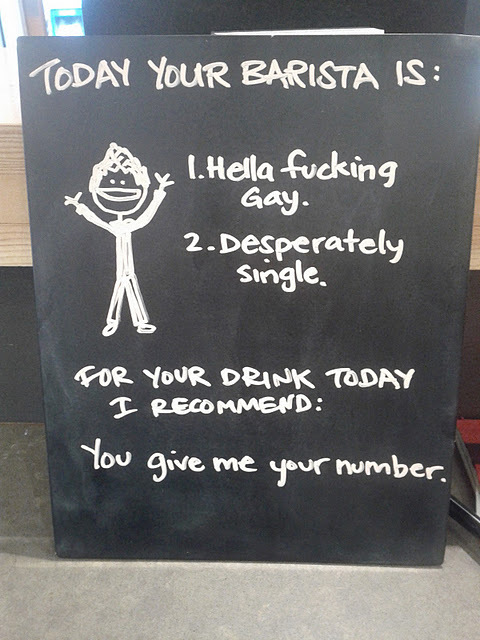affectingly:
I understand the desire for things to stay civil. But I want you to think about this: Why do you think it is that politeness and civility and calmness are held as the standard for any discourse? It’s because people in power set the rules.
When someone has done something to you and made you angry and you shouted at them, and then got scolded for shouting, was that just about trying to keep things “calm” and “civil”?
Or is it a tool to take your power away from you? Is it a way to keep the conversation under the control of the person in the wrong?
When the oppressor gets to set the terms for the oppressed to react to their oppression, that is keeping the power in the hands of the oppressor.
When something has happened to a person (a racist act, a misogynistic one, a homophobic one, an ableist one, etc.), do you think it’s fair that they get angry about that? Don’t you get angry when someone does something hurtful to you?
And it doesn’t matter if you choose to express your anger in a different way than the SJ blogger or minority you’re dealing with. What matters is that, even if you’re really not trying to dismiss their argument, even if all you want is for them to be civil with you, by asking for that, you’re telling them how they get to express their anger with a fucked up, oppressive system.
You’re doing the very thing that people in power have been doing all along: setting the terms of the discourse for YOUR comfort, instead of the oppressed’s comfort.
So yeah, it really sucks to deal with angry people who say “mean” things while getting their point across, and yeah, it hurts our feelings sometimes. But when you’re dealing with someone who has systematically had their power stripped from them within a system that you benefit from if you’re white and talking to a POC, or cisgendered and talking to someone who is trans*gendered, or a man talking to a woman, etc. etc. …is it that much of a sacrifice to accept whatever way they want to deal with their oppression?
Because I don’t think it is, and not only that, if you don’t like the way they choose to do things, you can click away. You can google the same topics and find all the information. That’s your privilege as someone not directly affected by racism (or ableism or transphobia or homophobia, etc.). And also remember that privilege is intersectional, and just because you may not have straight privilege or male privilege or thin privilege doesn’t mean you don’t still benefit from white privilege or cis privilege or what have you.
It’s not about tit for tat when SJ bloggers get angry. Most people don’t even LIKE getting angry because expressions of anger often leave a person even more exhausted and emotionally drained. Anger and how we choose to express it can be very powerful, though, and in the face of oppression and abuse, people have a right to express it.
I hope that helps.
—
[this version is rebloggable]
via:Tumblr http://ift.tt/1jTLBQQ

I understand the desire for things to stay civil. But I want you to think about this: Why do you think it is that politeness and civility and calmness are held as the standard for any discourse? It’s because people in power set the rules.
When someone has done something to you and made you angry and you shouted at them, and then got scolded for shouting, was that just about trying to keep things “calm” and “civil”?
Or is it a tool to take your power away from you? Is it a way to keep the conversation under the control of the person in the wrong?
When the oppressor gets to set the terms for the oppressed to react to their oppression, that is keeping the power in the hands of the oppressor.
When something has happened to a person (a racist act, a misogynistic one, a homophobic one, an ableist one, etc.), do you think it’s fair that they get angry about that? Don’t you get angry when someone does something hurtful to you?
And it doesn’t matter if you choose to express your anger in a different way than the SJ blogger or minority you’re dealing with. What matters is that, even if you’re really not trying to dismiss their argument, even if all you want is for them to be civil with you, by asking for that, you’re telling them how they get to express their anger with a fucked up, oppressive system.
You’re doing the very thing that people in power have been doing all along: setting the terms of the discourse for YOUR comfort, instead of the oppressed’s comfort.
So yeah, it really sucks to deal with angry people who say “mean” things while getting their point across, and yeah, it hurts our feelings sometimes. But when you’re dealing with someone who has systematically had their power stripped from them within a system that you benefit from if you’re white and talking to a POC, or cisgendered and talking to someone who is trans*gendered, or a man talking to a woman, etc. etc. …is it that much of a sacrifice to accept whatever way they want to deal with their oppression?
Because I don’t think it is, and not only that, if you don’t like the way they choose to do things, you can click away. You can google the same topics and find all the information. That’s your privilege as someone not directly affected by racism (or ableism or transphobia or homophobia, etc.). And also remember that privilege is intersectional, and just because you may not have straight privilege or male privilege or thin privilege doesn’t mean you don’t still benefit from white privilege or cis privilege or what have you.
It’s not about tit for tat when SJ bloggers get angry. Most people don’t even LIKE getting angry because expressions of anger often leave a person even more exhausted and emotionally drained. Anger and how we choose to express it can be very powerful, though, and in the face of oppression and abuse, people have a right to express it.
I hope that helps.
—
[this version is rebloggable]
via:Tumblr http://ift.tt/1jTLBQQ
























